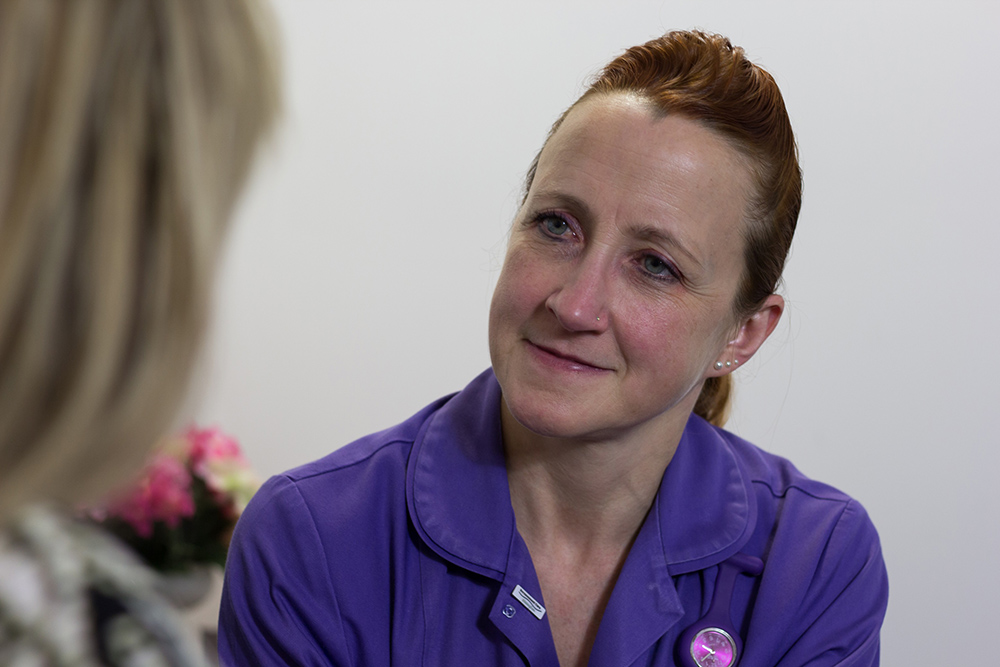Pictured: Erin Bolton, Bereavement Care Lead Nurse
Losing someone close to you is always distressing, sometimes traumatic, and can be devastating. And when that person passes away in hospital, compassionate care is what we should all expect.
Back in 2013 the trust was in ‘special measures’, we had high mortality rates and a perceived lack of dedicated bereavement care had been highlighted by the Care Quality Commission. I was End of Life Care Lead at the time, so this was troubling and hurtful.
The perception was that we were failing to provide compassionate care. However, I knew there was really good bereavement care going on across the Trust. But I also knew it wasn’t coordinated, communicated well and no one knew it as ‘bereavement care’.
The Trust’s response was to create a nursing post to scope the organisation, produce a gap analysis, and deliver a Bereavement Care Strategy. I got the job! The term ‘gap analysis’ felt like a negative starting point. Yes, I wanted to change things for the better, but I also wanted to champion the excellent work staff were already doing, and continue to do today. I’ve been a nurse for a number of years; I know what they do when a patient passes away. On the other hand, I needed to know what ancillary staff, porters, car park attendants and other staff did when they met grieving families.
Things are massively different today compared to four years ago and our reputation for compassionate care is much better, and well deserved.
For example, families used to queue at the General Office following a bereavement waiting for death certificates, alongside people claiming taxi expenses and collecting ID badges. It was undignified and unnecessary. Today, we offer private, peaceful bereavement suites at both Blackburn and Burnley Teaching hospitals.
In 2014, I completed my Masters in Death, Religion and Culture from the University of Winchester. It reinforced my understanding of different religions and proved especially useful in creating the Trust’s Care After Death Policy so that we respect all cultures.
But Bereavement Care isn’t just me – I simply find and highlight areas where work is going on, celebrating and sharing. One of the big success stories has been the establishment of our Bereavement Care Champions. People like Night Porter John Jackson, who was doing a fantastic job and making a real difference to bereaved families, but he wasn’t recognised for this. John’s now a proud Bereavement Care Champion, winner of the national Kate Granger Award for Compassionate Care and he spoke passionately when we launched our Bereavement Care Strategy.
Outside the Trust, our improved end of life care was a key factor when I had the honour to be named “Nurse of the Year “ by the British Journal of Nursing. Feedback from families in our annual bereavement care survey shows that things have changed and we now deliver what they need, to a high standard. If we had asked that question three years ago I’m sure we would have got a different response.
Real change happens when people share the same beliefs. When a patient dies, I encourage all ward staff to take the time to talk with the family. This approach has been embraced by staff who are thankful to have the time to give dignified end of life care.
It is everybody’s responsibility to deliver compassionate care which is why we have education and training in place, so that staff know what to do. I firmly believe most staff can provide most of the care; it simply requires care with compassion, not specialist staff. My specialist role is to provide co-ordination and encouragement.
It also doesn’t cost anything to deliver compassionate care, it’s the right thing to do and it is a much more accurate reflection of a truly caring organisation.



